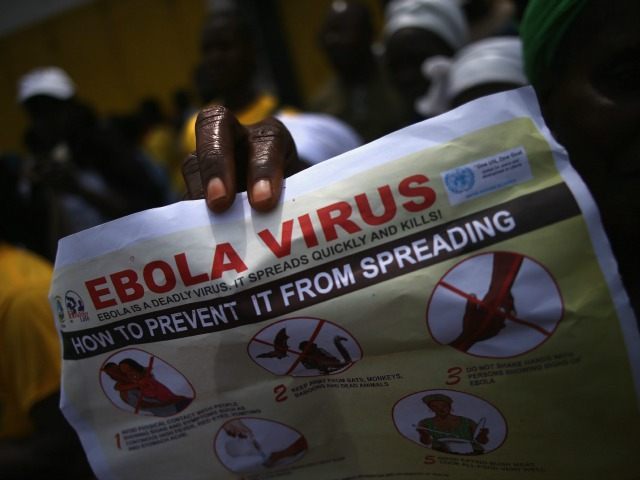The government of Rwanda has reinstated mandatory Ebola screening and self-reporting procedures at its airports, as Liberia imposes regular temperature checks at school to monitor any new potential cases following the death of 15-year-old Nathan Gbotoe of the disease in late November.
Gbotoe was diagnosed and ultimately died of Ebola and at least two of his family members have tested positive for the virus. The World Health Organization had declared the nation of Liberia Ebola-free on September 3.
The East African reports that Rwanda is taking immediate measures to ensure that travelers from the Ebola-affected nations of West Africa – Liberia, Guinea, and Sierra Leone – are properly screened and anyone exhibiting symptoms of the virus is treated promptly. Any visitor to Rwanda who has come from an Ebola-affected country is required to identify themselves as such to Ministry of Health authorities upon landing in the nation’s borders and submit to proper monitoring, even if not showing symptoms of Ebola. Those who register as having come from Ebola-affected nations will be required to report to the government on a daily basis for temperature and other symptomatic checks.
Rwandan Health Ministry spokesman Nathan Mugume tells the newspaper “there is no cause for alarm and no danger,” but the government does not want to gamble with the possibility of Ebola spreading to a new country. While Rwanda has not recorded any domestic cases of Ebola, its government has been among the most proactive in screening for the virus, even temporarily screening all American citizens entering the country for Ebola following a death in the U.S. of the disease, traced back to Liberia.
Liberia is currently monitoring 165 people who have been exposed to the new Ebola virus carriers. Medical officials have only diagnosed three cases of Ebola since the nation was declared Ebola-free, however, including Gbotoe. His father and brother are believed to be the other two victims, and both are expected to be discharged from the hospital and declared free of Ebola on Thursday, December 3. “It has been 12 days with no new cases and contacts are being followed up. Some of the contacts will be completing their 21 days,” a Liberian medical spokesman clarified Tuesday.
Liberian authorities do not yet know how Gbotoe contracted the disease, triggering greater concern that his was not a case linked to the greater outbreak beginning in February 2014, but patient zero of a new outbreak following exposure to contaminated meat. A new outbreak begins with a patient contracts Ebola from a non-human source; Ebola is commonly found in the blood of undercooked “bush meat,” a common source of protein in much of Africa.
Liberia’s schools are currently “in full observance of the School Safety Protocol,” according to officials. This requires students to pay extra attention to basic hygiene such as washing hands often and not sharing eating utensils, as well as regular temperature checks.
While fevers are common symptoms of Ebola, they may also indicate the presence of other viruses, as well, and temperature checks became notoriously unreliable metrics to use at the height of the 2014 Ebola outbreak. Virologists protested that airport temperature screenings were particularly ineffective because airport staff had not been trained in using thermometers, resulting in recorded temperatures in Ebola-free people at which it is impossible for a human being to be alive.
Liberia is currently in its twelfth day without an new Ebola case. Sierra Leone, which has suffered tremendous losses at the hands of Ebola, is currently enjoying Ebola-free status, though this has done little to temper the fear of the disease in affected areas. In southern Moyamba, for example, the ransacking of a former Ebola clinic has left the town in fear of a new resurgence of the virus, as mattresses and sheets used by Ebola victims were stolen and have yet to be found. To the best of their ability, authorities say, they have tracked down the thieves and placed them under quarantine.
The fear of Ebola survivors is even greater than that of materials used by Ebola victims. “Everywhere I go to stay, it will only take me few days to stay after which the house owner will ask me to leave because, I am a survivor,” says Marthaline Sueh, an Ebola survivor from Sierra Leone who lost her husband to the disease and is currently nine months pregnant. Sueh notes her children are also struggling in school due to excessive bullying as a result of their parents both contracting Ebola.

COMMENTS
Please let us know if you're having issues with commenting.